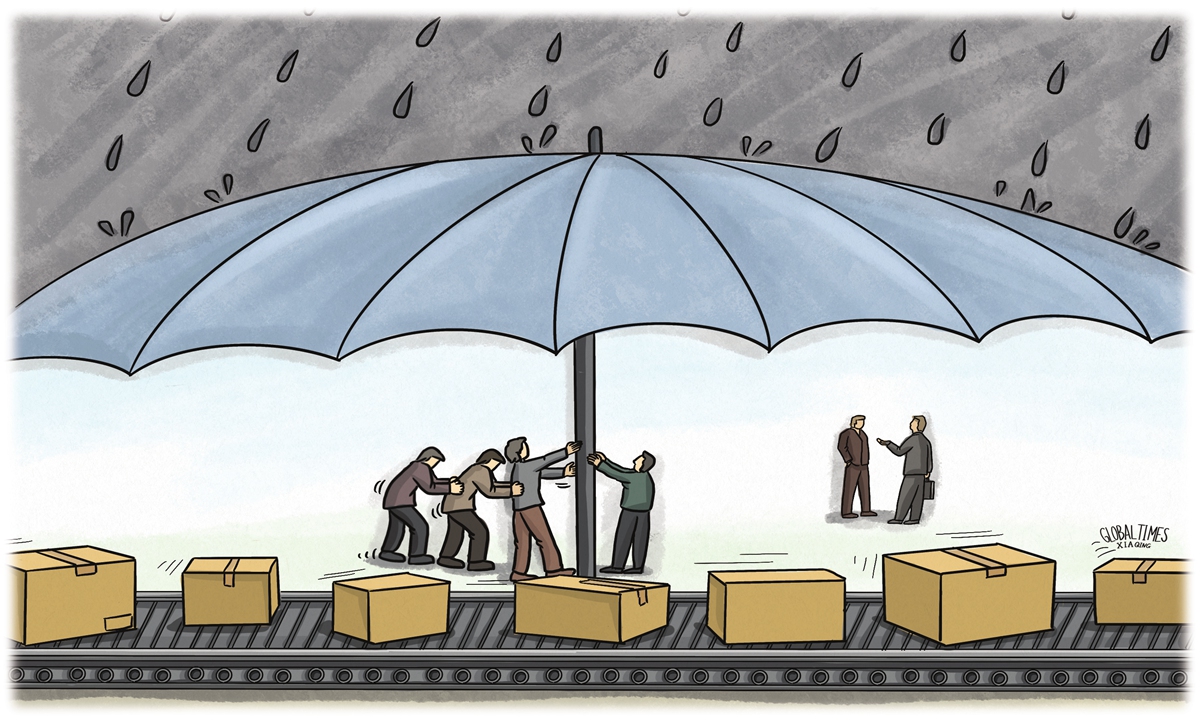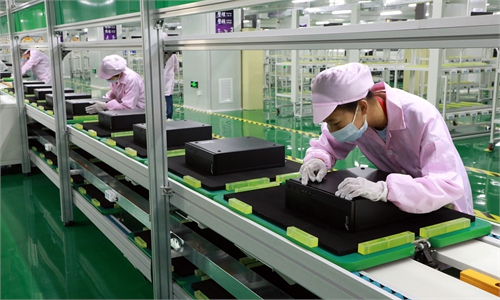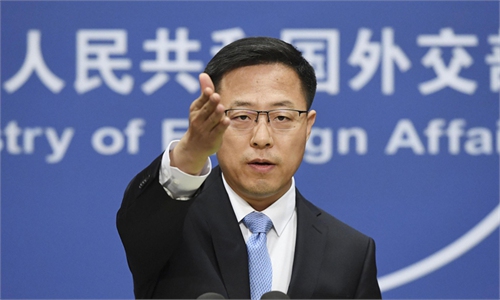
Illustration: Xia Qing/Global Times
Speaking at an event in Warsaw, the World Bank President David Malpass on Tuesday said that countries in the world are working to diversify their supply chains and reduce their dependence on China, which is "probably good for everyone," according to a Reuters report.If the World Bank chief's view on global supply chains and China is not distorted by Western media reports, it is not objective and does not correspond to the actual situation. As global supply chains face rising risks of further volatility, Malpass' remarks give the false impression that China is disengaging from global supply chains, which is untrue.
In fact, China has been actively integrating into the global supply chain and is a major contributor to the global economy. It is obvious to all that China has become the stabilizer of the global supply chain since the onset of the pandemic. Now facing the pressure of Omicron variant on supply chains in Shanghai and other places, China is expediting efforts to ensure the smooth movement of goods and the safety of the supply chain.
The reasons behind the global supply chain disruption in recent years are manifold, notably including the COVID-19 outbreak, US high-tech restrictions on China, and the US-led campaign to instigate productions to move out of China.
Now, global supply chains are under more pressures. Since the conflict between Russia and Ukraine, the US and the West have artificially cut off global supply chains by imposing sanctions, and the move by the US central bank to raise interest rates is increasing risks in capital markets.
For instance, US and Western sanctions have led to rising prices of food and energy, exacerbating the existing shortage of food and fertilizer in underdeveloped countries. Once global supply chains are artificially sabotages they are difficult to repair.
Against this backdrop, some Western media outlets have pointed fingers at China's "Dynamic Zero COVID" policy, hyping China's anti-COVID efforts on global supply chain. This is clearly misleading; China is actually the victim.
The US' relentless moves to strangle China in tech area and arbitrary tariff war are all acts designed to damage global supply chains. In fact, it is the US-led West that have sabotaging the global supply chain and attempting to blame China at the same time.
As an institution representing the public interest, the World Bank should not have any political bias in its policy. But Malpass' latest views seem following the tone of the US. While admitting China's increasing importance in global trading system, he also said China "needed to be part of a value system shared by other countries in the global trading system," according to Reuters.
The view is clearly politicizing economics issues, which China has always opposed. If ideological issues are mixed with economic and trade topics, it will make the problem much more complicated. It will only cause more confrontations, likely to divide the world into different camps, which will undermine the global efforts for a relatively quick recovery in post-COVID era.
As the world's economy faces the risk of backsliding into a distressed recession or even stagflation, the top priority is to stabilize the global supply chain.
To achieve the goal, all parties should first cooperate fully to fight the virus, which is a prerequisite for the recovery of the supply chain. Second, all parties should refrain from trade protectionism. And, all parties should avoid politicizing economic issues and divide the world into two camps with a Cold War mentality.
The US and the West now regard sanctions as their top priority. Sanctions can hardly solve any problems, but add fuel to the bonfire. Artificially created supply chain fragmentation will only lead to increased chaos in our world. If the US and the West fail to stop this wrong practice of politicizing and always blaming China, it will only further aggravate the global supply chain crisis.
The author is vice chairman of the China Society for World Trade Organization Studies in Beijing. bizopinion@globaltimes.com.cn



